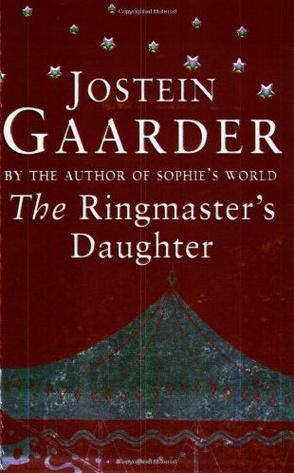

“I didn't feel lonely until there was something to yearn for. Loneliness and longing are two sides of the same coin.”
― Jostein Gaarder, quote from The Ringmaster's Daughter
“It was all too easy to make things up, it was like skating on thin ice, it was like doing dainty pirouettes on a brittle crust over water thousands of fathoms deep.”
― Jostein Gaarder, quote from The Ringmaster's Daughter
“Pająk wysnuwa wszystko ze swojego wnętrza. (...) Nie wszyscy pisarze tak robią. Niektórzy są jak mrówki, pozbierają trochę tu, trochę tam, a potem to, czego tak pracowicie naściągali, uważają za swoje dzieło. Krytycy bez obiekcji wierzą, że niemal wszyscy pisarze zaliczają się do tej właśnie kategorii. Chętnie wskazują, że dana książka "zawiera ślady", "czerpie z", "ma dług wdzięczności wobec" pewnych tytułów lub prądów bądź współczesnych, bądź z historii literatury, i to nawet wtedy, gdy rzeczony autor nigdy nie zbliżył się do wspomnianych pozycji. Krytycy jednak przyjmują niemal za pewnik, że wszyscy pisarze są równie uczeni i w równym stopniu pozbawieni fantazji jak oni sami. Wygląda na to, że za aksjomat przyjęto niemożność powstawania jakichkolwiek oryginalnych impulsów, przynajmniej nie jest to możliwe w żadnym małym kraju, a już z pewnością nie w w naszym. Istnieje jednak również trzecia kategoria pisarzy. Ci, którzy korzystali z Pogotowia Autorskiego, byli jak pszczoły. Zlatywali się, żeby zbierać nektar w różanym ogrodzie Pająka, w ten sposób zdobywali surowiec, lecz większość z nich wkładała wiele trudu i wysiłku w jego przerobienie. Przetrawiali zebrany z róż nektar i przetwarzali go na własny miód.”
― Jostein Gaarder, quote from The Ringmaster's Daughter
“Należymy do gatunku składającego słowa jak ryba ikrę, produkujemy więcej kultury, niż jesteśmy w stanie przetrawić. W ciągu ostatnich lat pedantycznie zwalczaliśmy graffiti na stacjach metra, a jednocześnie wydajemy miliony koron na budowę nowych bibliotek narodowych. Tymczasem zapis pamięci narodowej może przyjąć również formę graffiti. Nietzsche porównał człowieka przejedzonego kulturą do węża, który połknął zająca, a teraz drzemie w słońcu, nie będą w stanie się ruszyć. Czas epigramatów już minął. Na przystani w Bryggen w Bergen znaleziono niewielki kawałeczek drewna z takim oto napisem runicznym: Ingebjørg kochała mnie, kiedy byłem w Stavanger. Fakt ten musiał wywrzeć pewne wrażenie na autorze napisu, podobnie zresztą jak na czytelniku, żyjącym osiemset czy dziewięćset lat później. Dzisiaj oszczędny w słowach autor, chcąc uwiecznić jedną schadzkę z Ingebjørg, dorzuciłby do pamięci potomnych czerystustronicową powieść. Albo też zadręczyłby życie swoim współczesnym wpadającymi w ucho popularnymi piosenkami w stylu 'Nie ma jak z Ingebjørg, nie ma jak z Ingebjørg'. Paradoks polega na tym, że gdyby przez wszystkie osiemset lat napisano równie wiele powieści, jak w latach siedemdziesiątych, to nikt z nas nie byłby w stanie przebrnąć przez tak obfitą tradycję piśmiennictwa i nie dotarłby do prostej, lecz przyjemnej historii o Ingebjørg. (...) Namiętna historia miłośna została odarta ze wszystkiego aż do kości, lecz mimo to niesie za sobą mnóstwo konotacji. Ponadto pewnych rzeczy czytelnik może się domyślić. Dostał do ręki coś, nad czym dalej może pracować jego wyobraźnia. Po czterystustronicowej powieści trudno jest samemu coś wymyślić.”
― Jostein Gaarder, quote from The Ringmaster's Daughter
“Niccolo Machiaveli stood apart from the rest of the crowd, arms lightly folded across his chest, careful not to wrinkle his Saile Row- tailored black silk tuxedo. Stone gray eyes swept over the other bidders, analyzing and assessing them.”
― Michael Scott, quote from The Magician
“Didn't they realize that the only way to change things was to act?”
― Tamora Pierce, quote from The Woman Who Rides Like a Man
“My God. The woman is my fucking kryptonite. How did this happen? How did I let her own me? More importantly and fucking shocking, I want her to own me. Every fucking piece of me. Game over baby. She’s my motherfucking checkered flag.”
― K. Bromberg, quote from Fueled
“Isaac: “It hurts me when you cry.”
Senna: “I’m crying, but I don’t feel anything,”
Isaac: “Yes, I know. That’s what hurts me the most.”
― Tarryn Fisher, quote from Mud Vein
“She looks after him, feeling a wave of longing, loneliness. Not sexual particularly but to do with the nature of cities, the thousands of strangers you pass in a day, probably never to see again.”
― William Gibson, quote from Pattern Recognition
BookQuoters is a community of passionate readers who enjoy sharing the most meaningful, memorable and interesting quotes from great books. As the world communicates more and more via texts, memes and sound bytes, short but profound quotes from books have become more relevant and important. For some of us a quote becomes a mantra, a goal or a philosophy by which we live. For all of us, quotes are a great way to remember a book and to carry with us the author’s best ideas.
We thoughtfully gather quotes from our favorite books, both classic and current, and choose the ones that are most thought-provoking. Each quote represents a book that is interesting, well written and has potential to enhance the reader’s life. We also accept submissions from our visitors and will select the quotes we feel are most appealing to the BookQuoters community.
Founded in 2023, BookQuoters has quickly become a large and vibrant community of people who share an affinity for books. Books are seen by some as a throwback to a previous world; conversely, gleaning the main ideas of a book via a quote or a quick summary is typical of the Information Age but is a habit disdained by some diehard readers. We feel that we have the best of both worlds at BookQuoters; we read books cover-to-cover but offer you some of the highlights. We hope you’ll join us.